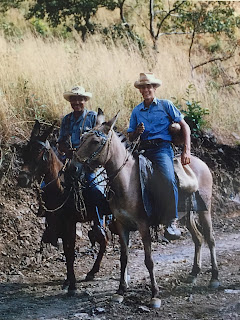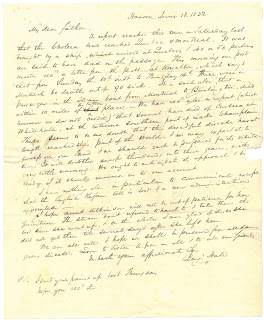
In 1961, President John F. Kennedy signed Executive Order 10924 establishing the Peace Corps under the directorship of R. Sargent Shriver. During the first year, volunteers were deployed to nine countries: Ghana, Tanzania, Chile, Columbia, India, Nigeria, the Philippines, St. Lucia and Pakistan. By 1962 Honduras became one of 28 total host countries. The following year Honduras requested an additional 50 volunteers to serve in rural communities throughout the country. Among the fifty new volunteers was recent Dartmouth College graduate, David Dawley.
Dawley’s service abroad began during a period of political unrest for the Honduran government and national tragedy for the United States. President John F. Kennedy’s assassination occurred during Dawley’s training in New Mexico and just two months prior to his scheduled departure, the Honduran military staged a “golpe de estado”, overthrowing the government and replacing President Ramon Villeda Morales, with General Oswaldo López Arellano. The military takeover was condemned by the United States and subsequently led to a break of diplomatic relations between the two governments. Despite the strained relationship between Honduras and the United States and the drama created by the assassination of J.F.K, the Honduras Rural Community Action Program moved forward as planned, affected only by a two-week delay.

In a letter dated November 24, 1963 to Kevin Lowther, his Dartmouth classmate, who was serving as a Peace Corps Volunteer in Sierra Leone, Dawley noted the justification for moving forward with the program:
Sorry for the delay in writing, but I was waiting to hear the final word. Our training was extended two weeks as a result of the revolution…. At any rate, I’m off for Honduras on December 6, with diplomatic relations still broken. The justification for sending us in is that the Peace Corps is a people to people program and operates independently of politics. This is simple in words, but the reality remains that we are an experimental group. Though all factions in Honduras--except the Communists--support our program, the implications of our aid are very uncertain…
This excerpt is from Dawley’s last letter to Lowther before his arrival in Honduras for his two-year assignment in El Triunfo, Choluteca, a rural town in the southern region of the country. His service is thoroughly documented through journaling, extensive correspondence to family and friends and summary reports.
His papers offer vivid descriptions and detailed reflections upon his interactions with the Honduran people, the programming, the uncertainty of his work, and his overall experience as a community organizer. Anecdotal memories of his Dartmouth days as well as updates about Big Green’s athletic pursuits are fondly recapped throughout his correspondence with Lowther and other classmates. His reflections consider the possibility of having “mistakenly romanticized” the notion of serving in the Peace Corps and whether or not he is making an impact.
In a letter dated May 9, 1964, Dawley explains to Lowther, “You’re the first guy I know who has said that he knows he is accomplishing something. The... unreflecting humility in wondering if you are really doing any good is out for this volunteer. In terms of latrines built, schools constructed, or water systems installed, I suppose this might be a valid preoccupation for some. But this is a false index to measuring the success of Peace Corps.”
Dawley’s service abroad ended in 1965. In 1970, President Richard Nixon appointed him to the National Advisory Council of Peace Corps under Chairman Neil Armstrong.
Request MS-1329 at the reference desk if you would like to learn more about Dawley’s community organizing efforts and his work developing the first interscholastic track and field competition in Honduras. His papers documenting the Peace Corps are just part of a larger collection. Upon returning to the United States, Dawley continued his community organizing efforts in Chicago after two years of graduate school at the University of Michigan. He worked with the Vice Lords, a street gang from the Lawndale neighborhood of the city. However, that story is for another blog post…
 We usually miss the early signs of impending doom and only later look back and piece together the clues. But one Dartmouth faculty member saw with sobering clarity the spread of the 1832 cholera pandemic into North America. On June 18, 1832, Benjamin Hale, professor of Chemistry, wrote a letter to his father reporting that a ship had arrived at Quebec and "40 or 50 persons are said to have died on the passage." Worse, another report stated that of the 90 people who had contracted cholera in Montreal the week before, 60 had died.
We usually miss the early signs of impending doom and only later look back and piece together the clues. But one Dartmouth faculty member saw with sobering clarity the spread of the 1832 cholera pandemic into North America. On June 18, 1832, Benjamin Hale, professor of Chemistry, wrote a letter to his father reporting that a ship had arrived at Quebec and "40 or 50 persons are said to have died on the passage." Worse, another report stated that of the 90 people who had contracted cholera in Montreal the week before, 60 had died.



